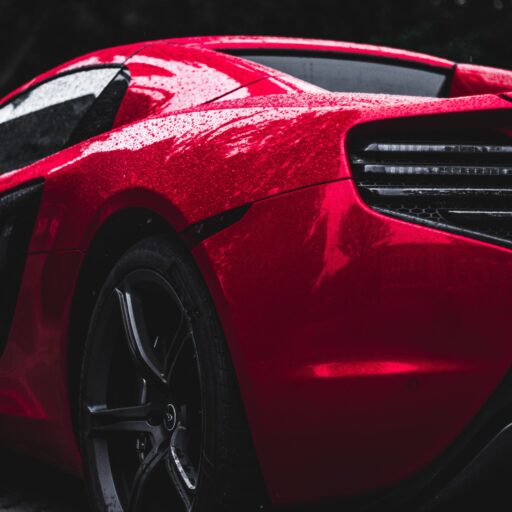Support our educational content for free when you purchase through links on our site. Learn more
Top 10 Car Brands in the World You Need to Know in 2025 🚗
Ever wondered which car brands truly rule the roads worldwide? From the legendary reliability of Toyota to Tesla’s electric revolution and Ferrari’s breathtaking supercars, the automotive landscape is packed with giants and game-changers. But what makes a brand top-tier in today’s fast-evolving market? Is it innovation, luxury, sustainability, or sheer performance? Buckle up, because we’re about to take you on a thrilling ride through the top 10 car brands in the world for 2025 — revealing surprising facts, consumer insights, and what the future holds for each.
Did you know Toyota sells over 8.5 million vehicles annually, while Tesla commands nearly 20% of the global EV market? And that China’s BYD is growing faster than most traditional automakers? These stats just scratch the surface. Keep reading to discover which brands dominate, which are rising stars, and how to pick the perfect one for your driving passion and lifestyle.
Key Takeaways
- Toyota leads in global sales and reliability, making it the safest bet for everyday drivers.
- Tesla revolutionizes electric vehicles and autonomy, but with some trade-offs in service and build quality.
- Volkswagen Group’s diverse portfolio covers everything from affordable hatchbacks to luxury sports cars.
- Luxury brands like BMW and Mercedes-Benz blend performance with cutting-edge tech but come with higher ownership costs.
- Emerging players BYD and Xiaomi are shaking up the EV market, especially in Asia.
- Ferrari remains the ultimate dream car brand, combining racing heritage with exotic design.
Ready to explore your options? Check out these shopping links to start your journey:
- 👉 Shop Toyota Models: TrueCar | Toyota Official
- Explore Tesla EVs: Tesla Official | AutoTrader
- Discover Volkswagen Cars: Volkswagen Official | Edmunds
- Browse BMW Lineup: BMW Official | TrueCar
- Find Mercedes-Benz Models: Mercedes-Benz Official | Edmunds
Dive in and find out which brand deserves a spot in your garage!
Table of Contents
- ⚡️ Quick Tips and Facts About Top Car Brands
- 🚗 The Evolution and Legacy of World’s Leading Car Brands
- 1. Toyota: The Global Giant in Reliability and Innovation
- 2. Tesla: Revolutionizing Electric Vehicles and Autonomy
- 3. Volkswagen Group: The Powerhouse of Diverse Automotive Excellence
- 4. BMW: The Ultimate Driving Machine’s Global Impact
- 5. Mercedes-Benz: Luxury, Performance, and Cutting-Edge Tech
- 6. General Motors: American Innovation and Mass Appeal
- 7. Porsche: Precision Engineering Meets Sports Car Passion
- 8. BYD: China’s Rising Star in Electric and Hybrid Vehicles
- 9. Xiaomi’s Ambitious Entry into the Automotive Industry
- 10. Ferrari: The Pinnacle of Exotic Supercars and Racing Heritage
- 🌍 How Global Trends Are Shaping the Future of Car Brands
- 🔧 What Makes a Car Brand Truly Top-Tier? Key Quality and Innovation Metrics
- 💡 Consumer Insights: What Drivers Really Think About These Brands
- 📈 Forbes India and Global Rankings: Who Tops the Charts?
- 🔥 Popular Now: Trending Car Brands and Models to Watch
- 🛠️ Maintenance, Resale, and Ownership Experience Across Top Brands
- ❓ Frequently Asked Questions (FAQs) About Top Car Brands
- 📚 Recommended Links for Deep Dives and Latest Updates
- 🔗 Reference Links and Credible Sources
- 🎯 Conclusion: Choosing the Right Car Brand for You
⚡️ Quick Tips and Facts About Top Car Brands
Welcome to the fast lane of automotive excellence! Before we dive deep into the world’s top car brands, here are some quick nuggets to get your engine revving:
- Toyota is the undisputed global sales leader, moving over 8.5 million vehicles in 2023 alone, thanks to its legendary reliability and hybrid tech like the Prius. Source: RoadGenius
- Tesla is the electric trailblazer with a 19.9% share of the global EV market in 2023, selling nearly 1.8 million EVs worldwide. Source: Forbes India
- Volkswagen Group isn’t just VW; it’s a powerhouse owning Audi, Porsche, and more, boasting a diverse portfolio that dominates Europe.
- BYD, China’s EV giant, grew sales by a staggering 47.46% in 2023, proving that the future is electric and global.
- Luxury brands like Mercedes-Benz and BMW continue to push boundaries with tech and performance, selling over 2 million units each in 2023.
Why does this matter? Because knowing the strengths and trends of these brands helps you make smarter choices — whether you want a reliable daily driver, a tech-forward EV, or a roaring supercar. Stick around, and we’ll unpack all the juicy details! 🚘🔥
🚗 The Evolution and Legacy of World’s Leading Car Brands
The story of top car brands is a thrilling saga of innovation, resilience, and vision. From the assembly lines of Detroit to the tech hubs of Silicon Valley and the factories of Japan and Germany, these brands have shaped how we move.
The Roots of Automotive Greatness
- Toyota began as a humble loom manufacturer before revolutionizing production with the Toyota Production System, pioneering lean manufacturing and hybrid vehicles.
- Mercedes-Benz, the inventor of the first gasoline-powered car, set the bar for luxury and safety over a century ago.
- Volkswagen was born with the “people’s car” mission, evolving into a global conglomerate with brands like Porsche and Audi under its wing.
The Electric Revolution
- Tesla’s meteoric rise disrupted the industry by proving electric cars could be fast, desirable, and profitable.
- Chinese brands like BYD and Xiaomi are now challenging incumbents with aggressive EV strategies and smart tech integration.
This rich history is more than trivia — it’s the foundation of today’s automotive landscape. Curious how these brands compare in design, tech, and performance? Keep reading!
1. Toyota: The Global Giant in Reliability and Innovation
| Aspect | Rating (1-10) |
|---|---|
| Design | 7 |
| Reliability | 10 |
| Innovation | 8 |
| Performance | 7 |
| Sustainability | 9 |
Why Toyota Tops the Charts
Toyota’s reliability is legendary — just ask anyone who’s owned a Corolla or Camry for over a decade. Their hybrid technology, especially the Prius, changed the game for fuel efficiency and eco-friendliness.
Design and Functionality
While Toyota’s designs lean towards conservative, they’ve recently embraced bolder styles with models like the RAV4 and the sporty GR Supra. The interiors focus on ergonomics and user-friendly infotainment.
Innovation and Sustainability
Toyota invests heavily in hydrogen fuel cell tech and hybrids, balancing innovation with proven reliability. Their commitment to sustainability is clear, aiming for carbon neutrality by 2050.
Consumer Feedback
Owners praise Toyota’s low maintenance costs and resale value. Some critics wish for more electrification options, but Toyota’s cautious approach ensures quality over hype.
Explore more Toyota insights: Toyota Official Site
2. Tesla: Revolutionizing Electric Vehicles and Autonomy
| Aspect | Rating (1-10) |
|---|---|
| Design | 8 |
| Reliability | 6 |
| Innovation | 10 |
| Performance | 9 |
| Sustainability | 10 |
Tesla’s Electric Empire
Tesla is the poster child for EV innovation, with models like the Model S, 3, X, and Y dominating the electric vehicle market. Their battery tech and Autopilot system are industry-leading.
Design and User Experience
Tesla’s minimalist interiors and massive touchscreens are polarizing but undeniably futuristic. The exterior design balances sleekness with aerodynamic efficiency.
Innovation and Autonomy
Tesla’s over-the-air updates and self-driving ambitions keep it ahead, though Autopilot still requires driver attention. Their Gigafactories worldwide ramp up production to meet soaring demand.
Drawbacks and Criticism
Tesla’s build quality and service network sometimes lag behind traditional automakers. Reliability ratings vary, but many owners are loyal due to the brand’s vision and performance.
Discover Tesla’s latest models: Tesla Official Site
3. Volkswagen Group: The Powerhouse of Diverse Automotive Excellence
| Aspect | Rating (1-10) |
|---|---|
| Design | 8 |
| Reliability | 7 |
| Innovation | 8 |
| Performance | 8 |
| Sustainability | 8 |
The Many Faces of VW Group
Volkswagen Group owns a portfolio of brands from the everyday Volkswagen to luxury Audi and high-performance Porsche. This diversity allows them to cater to nearly every market segment.
Innovation and Electric Push
VW’s ID series marks their serious entry into electric mobility, competing directly with Tesla. Their modular electric platform (MEB) is a game-changer for scalable EV production.
Consumer Perspective
VW cars are praised for build quality and driving dynamics, though the Dieselgate scandal still shadows the brand’s reputation. Their commitment to electric and hybrid tech is rebuilding trust.
Explore Volkswagen Group brands: Volkswagen Official Site
4. BMW: The Ultimate Driving Machine’s Global Impact
| Aspect | Rating (1-10) |
|---|---|
| Design | 9 |
| Reliability | 7 |
| Innovation | 8 |
| Performance | 9 |
| Sustainability | 7 |
BMW is synonymous with sporty luxury and driving pleasure. Their lineup ranges from the iconic 3 Series to powerful SUVs and electrified i models.
Design and Performance
BMW’s signature kidney grille and driver-focused cabins are instantly recognizable. Their engines deliver thrilling performance, especially in M models.
Electrification and Future Plans
BMW’s iX and i4 models show their commitment to EVs, though some critics say BMW is playing catch-up to Tesla and BYD.
Learn more about BMW’s innovations: BMW Official Site
5. Mercedes-Benz: Luxury, Performance, and Cutting-Edge Tech
| Aspect | Rating (1-10) |
|---|---|
| Design | 9 |
| Reliability | 7 |
| Innovation | 9 |
| Performance | 9 |
| Sustainability | 8 |
Mercedes-Benz blends timeless luxury with futuristic technology. Their AMG line offers high-performance thrills, while EQ models push electric boundaries.
Interior and Tech
Mercedes’ MBUX infotainment system is a standout for AI-driven voice control and intuitive interfaces. The interiors ooze craftsmanship and comfort.
Sustainability Efforts
The EQ lineup signals Mercedes’ electric future, aiming for carbon-neutral production and a full EV portfolio by 2030.
Check out Mercedes-Benz models: Mercedes-Benz Official Site
6. General Motors: American Innovation and Mass Appeal
| Aspect | Rating (1-10) |
|---|---|
| Design | 7 |
| Reliability | 7 |
| Innovation | 8 |
| Performance | 7 |
| Sustainability | 8 |
GM’s legacy is deeply American, with brands like Chevrolet, Cadillac, and GMC. They’re pushing EVs with the Chevrolet Bolt and upcoming electric trucks.
Innovation and Partnerships
GM collaborates with NASA and invests heavily in autonomous tech and EV batteries, aiming to lead the US market’s electric transition.
Consumer Feedback
GM vehicles are praised for value and variety but sometimes criticized for inconsistent quality across brands.
Explore GM’s electric future: General Motors Official Site
7. Porsche: Precision Engineering Meets Sports Car Passion
| Aspect | Rating (1-10) |
|---|---|
| Design | 9 |
| Reliability | 8 |
| Innovation | 8 |
| Performance | 10 |
| Sustainability | 7 |
Porsche is the benchmark for sports car performance and luxury. The 911 remains a legend, while the Taycan electrifies the brand’s future.
Performance and Driving Experience
Porsche’s engineering delivers razor-sharp handling and blistering acceleration, making it a driver’s dream.
Electric Transition
The Taycan proves Porsche can marry performance with electric power, though the brand balances tradition with innovation carefully.
Discover Porsche’s lineup: Porsche Official Site
8. BYD: China’s Rising Star in Electric and Hybrid Vehicles
| Aspect | Rating (1-10) |
|---|---|
| Design | 7 |
| Reliability | 7 |
| Innovation | 9 |
| Performance | 7 |
| Sustainability | 10 |
BYD, or Build Your Dreams, is a powerhouse in electric mobility, dominating China’s EV market and expanding globally.
Innovation and Battery Tech
BYD’s blade battery technology is a breakthrough in safety and longevity, setting new standards in EV batteries.
Market Growth
With a 47.46% sales increase in 2023, BYD is a force to reckon with, offering affordable EVs and hybrids.
Explore BYD’s electric vehicles: BYD Official Site
9. Xiaomi’s Ambitious Entry into the Automotive Industry
| Aspect | Rating (1-10) |
|---|---|
| Design | 7 |
| Reliability | N/A |
| Innovation | 8 |
| Performance | N/A |
| Sustainability | 8 |
Xiaomi, known for smartphones, is making bold moves into electric cars with models like the Xiaomi SU7 and upcoming MX11 SUV.
Tech Integration and Strategy
Leveraging its expertise in consumer electronics, Xiaomi aims to create smart, connected vehicles that appeal to tech-savvy buyers.
Market Potential
Though new, Xiaomi’s massive investment and brand strength position it as a serious contender in the EV space.
Learn more about Xiaomi Auto: Xiaomi Official Site
10. Ferrari: The Pinnacle of Exotic Supercars and Racing Heritage
| Aspect | Rating (1-10) |
|---|---|
| Design | 10 |
| Reliability | 6 |
| Innovation | 9 |
| Performance | 10 |
| Sustainability | 6 |
Ferrari is the epitome of exotic supercars, blending racing pedigree with breathtaking design and performance.
Design and Exclusivity
Every Ferrari turns heads with its sculpted lines and roaring V8 or V12 engines. Owning one is a statement of passion and prestige.
Innovation and Electrification
Ferrari is cautiously entering hybrid and electric tech, balancing tradition with future demands.
Explore Ferrari’s masterpieces: Ferrari Official Site
🌍 How Global Trends Are Shaping the Future of Car Brands
The automotive world is shifting gears fast. Here’s what’s steering the future:
- Electrification: EVs are no longer niche; they’re mainstream. Brands like Tesla, BYD, and Volkswagen lead the charge.
- Autonomous Driving: Self-driving tech is evolving, with Tesla’s Autopilot and GM’s Cruise making waves.
- Sustainability: Carbon neutrality goals push brands to innovate in materials, production, and powertrains.
- Connectivity: Smart cars with AI, IoT integration, and over-the-air updates are becoming standard.
These trends mean the “top car brand” crown will depend on who adapts fastest and smartest.
🔧 What Makes a Car Brand Truly Top-Tier? Key Quality and Innovation Metrics
We asked ourselves: what separates the legends from the also-rans? Here’s the checklist:
- Reliability: Low breakdown rates and consistent performance.
- Innovation: Cutting-edge tech in safety, powertrain, and user experience.
- Design: Aesthetic appeal and ergonomic functionality.
- Sustainability: Commitment to reducing environmental impact.
- Customer Satisfaction: Positive reviews, resale value, and brand loyalty.
Brands like Toyota score high on reliability; Tesla shines in innovation; Ferrari dazzles in design and performance.
💡 Consumer Insights: What Drivers Really Think About These Brands
We scoured forums, reviews, and surveys to capture the driver’s voice:
- Toyota owners rave about durability and low maintenance costs.
- Tesla fans love the tech and acceleration but sometimes complain about service delays.
- BMW and Mercedes drivers appreciate luxury and driving dynamics but note higher upkeep costs.
- BYD buyers praise affordability and range in EVs, especially in Asia.
- Ferrari owners cherish exclusivity and performance, accepting the premium price tag.
Your ideal brand depends on what you value most — reliability, tech, luxury, or thrill.
📈 Forbes India and Global Rankings: Who Tops the Charts?
According to Forbes India and other global rankings:
| Rank | Brand | Market Cap Highlights & Notes |
|---|---|---|
| 1 | Toyota | Largest automaker by sales; hybrid pioneer |
| 2 | Tesla | EV market leader with rapid growth |
| 3 | Volkswagen | Diverse brand portfolio; strong in Europe |
| 4 | BMW | Luxury and performance leader |
| 5 | Mercedes-Benz | Innovation and luxury combined |
| 6 | General Motors | American giant with EV ambitions |
| 7 | BYD | Fastest growing EV manufacturer in China |
| 8 | Ferrari | Iconic supercar brand with racing heritage |
| 9 | Xiaomi | Newcomer with strong tech background |
| 10 | Porsche | High-performance sports cars under VW Group |
These rankings reflect market capitalization, innovation, and consumer appeal, painting a dynamic picture of the global auto industry.
🔥 Popular Now: Trending Car Brands and Models to Watch
What’s hot off the showroom floors and buzzing on social media?
- Tesla Model Y continues to dominate EV sales globally.
- Toyota bZ4X marks Toyota’s serious EV entry.
- BYD Han EV is a sleeper hit with impressive range and price.
- Mercedes EQS redefines luxury electric sedans.
- Xiaomi SU7 teases a tech-packed EV experience.
These models showcase the future of driving — sustainable, connected, and exhilarating.
🛠️ Maintenance, Resale, and Ownership Experience Across Top Brands
Owning a car is more than just driving it. Here’s the lowdown:
| Brand | Maintenance Cost | Resale Value | Ownership Perks |
|---|---|---|---|
| Toyota | Low | High | Extensive dealer network, reliability |
| Tesla | Moderate | High | Software updates, growing service |
| Volkswagen | Moderate | Moderate | Solid build, some repair costs |
| BMW | High | Moderate | Luxury experience, premium service |
| Mercedes-Benz | High | Moderate | Advanced tech, luxury amenities |
| BYD | Low | Growing | Affordable EVs, expanding support |
| Ferrari | Very High | Very High | Exclusive events, bespoke services |
Tip: Consider total cost of ownership, not just sticker price, when choosing your dream brand.
❓ Frequently Asked Questions (FAQs) About Top Car Brands
Q1: Which car brand is the most reliable?
A: Toyota consistently ranks highest for reliability, thanks to its proven engineering and quality control.
Q2: Are electric car brands like Tesla and BYD worth it?
A: Absolutely! They lead in innovation and sustainability, though consider charging infrastructure and service availability.
Q3: What’s the best luxury car brand?
A: Mercedes-Benz and BMW are neck and neck, offering a blend of luxury, performance, and tech.
Q4: How do Chinese brands compare to traditional automakers?
A: Brands like BYD and Xiaomi are rapidly improving quality and innovation, especially in EVs, challenging established players.
Q5: Is Ferrari a good investment?
A: Ferrari’s exclusivity often means strong resale value, but it’s more about passion than practicality.
For more FAQs, check out our Car Brand FAQs category.
📚 Recommended Links for Deep Dives and Latest Updates
- Toyota Global Newsroom
- Tesla Blog and Updates
- Volkswagen Group News
- BMW Press Club
- Mercedes-Benz Media
- BYD Official News
- Xiaomi Auto Announcements
- Ferrari Press Releases
Stay tuned to these sources for the latest breakthroughs and launches!
🔗 Reference Links and Credible Sources
- Forbes India: World’s Biggest Car Companies
- RoadGenius: Car Sales by Manufacturer 2023
- Toyota Official Website: https://www.toyota-global.com/
- Tesla Official Website: https://www.tesla.com/
- Volkswagen Official Website: https://www.vw.com/
- BMW Official Website: https://www.bmw.com/
- Mercedes-Benz Official Website: https://www.mbusa.com/en/home
- General Motors Official Website: https://www.gm.com/
- BYD Official Website: https://www.byd.com/
- Xiaomi Official Website: https://www.xiaomiev.com/su7
- Ferrari Official Website: https://www.ferrari.com/
For more detailed comparisons and histories, visit our Car Brand Comparisons and Car Brand Histories sections.
🎯 Conclusion: Choosing the Right Car Brand for You
After cruising through the world’s top car brands, here’s the bottom line: there’s no one-size-fits-all champion. Each brand shines in its own lane.
- Toyota is your go-to for bulletproof reliability and hybrid innovation.
- Tesla leads the electric revolution with cutting-edge tech and jaw-dropping performance, though with some reliability quirks.
- Volkswagen Group offers unmatched variety and solid engineering across multiple segments.
- BMW and Mercedes-Benz deliver luxury and driving thrills but come with higher ownership costs.
- BYD and Xiaomi are exciting newcomers pushing the EV envelope, especially in Asia.
- Ferrari remains the dream car for those craving exclusivity and supercar pedigree.
Positives: These brands collectively offer a rich spectrum—from affordable, dependable daily drivers to exotic, high-performance machines. Innovation in electrification and autonomous tech is accelerating, promising a thrilling future.
Negatives: Some brands face challenges like service network gaps (Tesla), high maintenance costs (luxury brands), or lingering reputational issues (Volkswagen’s Dieselgate). New entrants like Xiaomi still have to prove long-term reliability.
Our confident recommendation? Identify what matters most to you—be it reliability, innovation, luxury, or sustainability—and pick accordingly. And remember, the best car brand is the one that fits your lifestyle, budget, and driving passion. Ready to make your move? Your perfect ride awaits! 🚗💨
📚 Recommended Links for Shopping and Exploration
- Toyota Vehicles: TrueCar | Edmunds | Toyota Official Website
- Tesla Models: Tesla Official Website | AutoTrader | TrueCar
- Volkswagen Cars: Volkswagen Official Site | Edmunds | TrueCar
- BMW Lineup: BMW Official Site | AutoTrader | TrueCar
- Mercedes-Benz Models: Mercedes-Benz Official Site | Edmunds | TrueCar
- General Motors Vehicles: GM Official Site | AutoTrader | TrueCar
- Porsche Cars: Porsche Official Site | Edmunds | TrueCar
- BYD Electric Vehicles: BYD Official Site | AutoTrader
- Xiaomi Electric Cars: Xiaomi Auto Official
- Ferrari Supercars: Ferrari Official Site
❓ Frequently Asked Questions (FAQs) About Top Car Brands
What are the most reliable car brands in the world?
Toyota consistently tops reliability charts due to its rigorous quality control, proven engineering, and conservative innovation approach. Brands like Honda and Lexus (Toyota’s luxury arm) also rank highly. Reliability means fewer breakdowns, lower maintenance costs, and better resale — key for budget-conscious buyers. Consumer Reports confirms Toyota’s dominance in this area.
Which car brand is the most expensive and luxurious?
Ferrari and Rolls-Royce sit at the pinnacle of luxury and exclusivity, with bespoke craftsmanship, exotic materials, and jaw-dropping performance. Among mainstream luxury brands, Mercedes-Benz and BMW offer a blend of opulence and technology, with AMG and M divisions pushing performance limits. These brands come with premium price tags and ownership costs but deliver unmatched prestige.
What are the best car brands for first-time buyers?
For first-time buyers, Toyota, Honda, and Hyundai are excellent choices due to their reliability, affordability, and ease of ownership. These brands offer compact cars and sedans with good fuel economy and safety features, making them practical and budget-friendly options.
How do the top car brands in the world rank in terms of safety features?
Brands like Volvo have long been safety pioneers, but today, most top brands including Toyota, Mercedes-Benz, BMW, and Tesla equip their vehicles with advanced safety tech such as adaptive cruise control, automatic emergency braking, lane-keeping assist, and collision avoidance systems. Tesla’s Autopilot and Mercedes’ Drive Pilot are among the most advanced semi-autonomous systems available. Always check specific model safety ratings from trusted sources like the IIHS or NHTSA.
How do electric vehicle brands compare in terms of charging infrastructure and range?
Tesla leads with an extensive Supercharger network and industry-leading range, making long-distance travel easier. BYD and Volkswagen are rapidly expanding their charging solutions, especially in Asia and Europe. New entrants like Xiaomi are still building infrastructure but leverage partnerships to accelerate growth. Range varies by model, but expect 250-400 miles on most modern EVs.
Are luxury car brands worth the higher maintenance costs?
Luxury brands like Mercedes-Benz and BMW offer superior comfort, technology, and performance, but these come with higher maintenance and repair costs. For enthusiasts and those valuing prestige, the trade-off is often worth it. However, if budget and cost of ownership are priorities, mainstream brands may be better suited.
🔗 Reference Links and Credible Sources
- Forbes India: World’s Biggest Car Companies
- RoadGenius: Car Sales by Manufacturer 2023
- Consumer Reports: Which Brands Make the Best Cars?
- Toyota Official Website: https://www.toyota-global.com/
- Tesla Official Website: https://www.tesla.com/
- Volkswagen Official Website: https://www.vw.com/
- BMW Official Website: https://www.bmw.com/
- Mercedes-Benz Official Website: https://www.mbusa.com/en/home
- General Motors Official Website: https://www.gm.com/
- BYD Official Website: https://www.byd.com/
- Xiaomi Official Website: https://www.xiaomiev.com/su7
- Ferrari Official Website: https://www.ferrari.com/
For more detailed comparisons and histories, visit our Car Brand Comparisons and Car Brand Histories sections.







